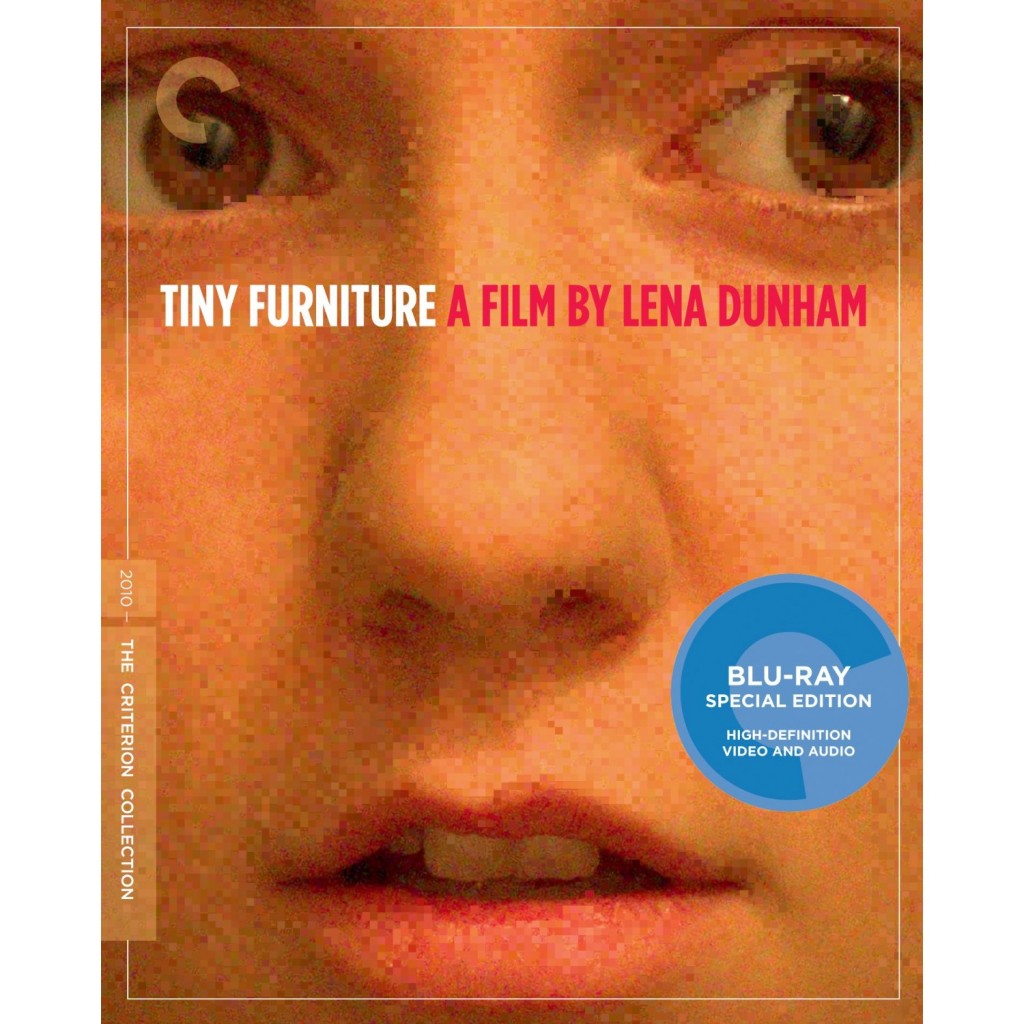The Criterion Collection is known for restoring and distributing some of the most important films. Whether the importance is cultural, aesthetic, contemporary, or classical, there are always titles that are head scratchers. Tiny Furniture is one of those head scratchers, until you finally watch it. Filmed on a shoe-string budget, this independent film boasts gorgeous composition and a relatable, plausible plot and character.
Aura (Lena Dunham) has returned home from college with her hamster and little interest in going forward with her life and career. Her boyfriend at college dumped her just before her trip home, and her mother and sister appear to treat her more like an invasive guest rather than a loved family member. Lena finds herself romantically interested in two men her age, both of which seem to only have a passing interest her.
Aura has returned from college with a freshly pressed degree in film studies. It is difficult for me to maintain a non-bias perspective, as I have already obtained a Bachelors in Cinema Studies and I am finishing up a Masters degree in the same field. Film/cinema studies does not focus on the trade or production aspect, but more on the history, theory, and criticism of film and media. While Lena’s family is artistic, the immediate change from an academic environment to that of a home with set routines is too drastic for her.
Aura is the perfect example of a post-collegiate Generation Y female. Played by Dunham, who also wrote and directed Tiny Furniture, she is seen in the film wearing an over-sized t-shirt and underwear either late at night or early in the morning. Dunham is not at all your typical actress as she is has a flat appearance and has full-figure. This works to her advantage as it still shows that Aura is hiding behind a her former sleep-all-day, study-all-night college persona. This attire exhibits her down-beaten state, but also as an adult not ready to enter into the working world, even though there are few avenues for film studies graduates. Aura, ergo Lena, is a welcomed portrayal of the generation of females exiting college.
One of the most comedic and realistic scenes is when Aura is confronted by her mother who is upset about Aura’s behavior after returning home. However, Aura is able to turn the the argument around an argue her point of view, that she has returned home without any career prospects, dumped by her boyfriend, and a hamster who went to live at a farm upstate. This is a realistic argument that many have had with their parents, and we can see in Aura’s eyes how she is hiding the joy of being able skirt around being struck down by her mother. It is a inherent talent that all teenagers and young twenty-somethings learn and use to their advantage. Seeing Dunham execute it so perfectly is stunning and introspective for all ages.
Mumblecore is a style of filmmaking that has risen in the past several years to categorize low/no-budget films with amateur actors, naturalistic/improvised dialogue, hand-held camerawork, and the same post-collegiate Generation X & Y existential crisis that Aura falls into so perfectly. The characters in these Mumblecore films are all over-educated, under-employed, making their intent to fit into their environment all the more difficult and imperative. Essentially, these films present a rather realistic portrayal of life in the Aughts and beyond for a generation that seems to already be beat.
For Aura, she lives in the shadow of her mother who made a name for herself as a photographer of tiny furniture. While Aura’s mother (Laurie Simmons, Lena’s real-life mother) never seems to Tiny Furniture employs many wide shots to show the floundering situation. Aura is a part of a generation that many seem to feel have a unrealistic sense of entitlement, but Dunham has clearly shown in her film that this not only is it true, it is the product of a symptom of over-education and under-employment. Tiny Furniture may have a very small niche audience, but I implore you to to see this film from a future master filmmaker.
